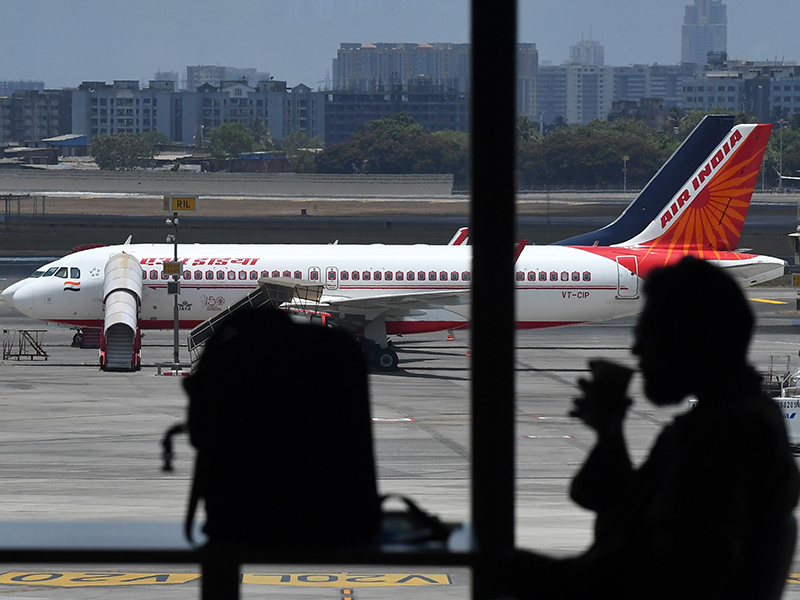COVID-19 has done to the aerospace industry what 9/11 and 2008 meltdown couldn't, says this Indian supplier to Boeing, Airbus
The disruption has forced Aequs, which manufactures components for Airbus and Boeing, to cut production by up to 40 percent
 Image: INDRANIL MUKHERJEE/AFP via Getty Images
Image: INDRANIL MUKHERJEE/AFP via Getty Images
For years, aircraft manufacturers like Boeing and Airbus have been riding a boom that seemed un-ending. Even though scores of airlines began operations only to be grounded earlier, demand for aircraft kept growing as more and more customers took to flying across the world.
Thanks to the boom, Aravind Melligeri, founder of aerospace manufacturing firm Aequs, said the monthly output of aircraft doubled from about 50-75 to 150 a month, over the last decade.
As Boeing and Airbus expanded their production, Aequs benefited. "Over the last 17 years, since we started operations, it's been all about growth, growth, growth," Melligeri told Moneycontrol over a phone call from the US. Aequs manufactures components for Airbus and Boeing.
"Aequs had been growing at a CAGR of 30-40 percent. But now, it's like we are reversing. It's a huge change in our mind-set," the entrepreneur added.
COVID-19 has disrupted the global aviation industry, forcing some airlines to file for bankruptcy. This kind of disruption was not seen during 9/11 or the 2008 economic meltdown, he said.
Airlines who have survived, till now, have grounded most of their fleet. Though some of the airlines, including in India where domestic flights resumed on May 25, have restarted operations, demand is low.
The excess capacity means that all airlines have reworked the pipeline for new aircraft. This forced Boeing and Airbus, the two biggest manufacturers of aircraft in the world, to readjust their production lines. Airbus cut production by a third, and Boeing reduced the rate across its range of aircraft.
"Our production has gone down by 30 percent. Though it is too early to say for the whole year, the growth could be negative this year," Melligeri said.
Aequs, which has a special economic zone in Karnataka's Belgaum, specialises in manufacturing components for Airbus and Boeing. These include components used in landing gear and engines.
Change in mind-set
The aerospace industry usually grows at two times the GDP rate. This mean that Melligeri had to plan for Aequs's own growth at least a year in advance.
"That's what we have been doing all these years. We order machines and other resources in advance...but now instead of growth, we have to focus on controlling costs," said the company's Chairman and CEO.
Adjusting resources to the new ground situation is not easy. And that's because smaller, single aisle aircraft have become more popular because of the COVID-19 disruption.
"Long distance international travel, for which the wide body aircraft are used, will take some time to take off again. Instead, shorter hauls are more in demand now," Melligeri said.
This means that aircraft manufacturers will have to reschedule their own production lines accordingly. This in turn would mean component suppliers like Aequs will also have to make the change.
The new SOP
Aequs had to shut its operations at the Belgaum special economic zone (SEZ) for a week post the national lockdown in March, but resumed it once the state government listed it under essential services.
The SEZ, which includes Aequs suppliers, employs about 5,000 people. Of this, 60 percent of the labour force is back to work.
To ensure that the facilities are COVID-19-complaint, a lot of standard operating procedures (SOPs) were put in place. "For instance, we have ensured that employees no longer group around a water dispenser or at the canteen," says Melligeri.
Also, employees are discouraged from mingling. Now, employees go to the canteen in a batch of four. Every day, the same four employees go together. "This will help us to know who all are at risk if one person gets infected," Melligeri said.
While Aequs resumed operations with one shift, this has increased to three. The company has also opened a new 'city office' in Belgaum, so that movement to the SEZ is limited. Those handling engineering and finance functions are now based out of this office.
"This may add some costs, but safety is important," said the founder.
Original Source: https://www.moneycontrol.com/news/business/covid-19-has-done-to-the-aerospace-industry-what-911-and-2008-meltdown-couldnt-says-this-indian-supplier-to-boeing-airbus-5379081.html